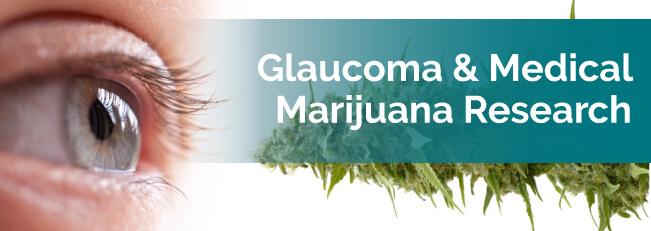
When you have glaucoma, fluid builds up in your eye, putting pressure on your optic nerve. Since the optic nerve connects your retina to your brain, the damage from the pressure can eventually make you blind.
Scientists are currently researching different ways to reduce glaucoma damage, including using cannabis. These studies will give you an idea of what they’ve discovered so far.
Research indicates marijuana could reduce pressure on the optic nerve to reduce the symptoms of glaucoma. In addition, it reduces pain and inflammation caused by disorders such as glaucoma to make treatment more comfortable for patients. Because of these perks, many weed-friendly states have approved glaucoma as a qualifying condition for cannabis medicine.
Porcella et al. tested a topical medicine made from a synthetic cannabinoid in search of an alternative to conventional glaucoma treatments. Since the studies they referenced stated that 10% of patients with ocular pressure become blind, they wanted to discover medicine for treatment-resistant glaucoma. Research indicated that cannabis could be the answer.
To examine the efficiency of the topical cannabinoid, they had eight patients use either a 25mg or 50mg treatment. They then recorded the effects of the dosages, tracking the amount of ocular pressure to see when the topicals worked best, how quickly they reduced pressure and how much pressure they lowered.
Not only did the cannabinoid topical lessen ocular pressure for the patients, but it also did it quickly. The 25mg dose showed a 15% improvement after 30 minutes and peaked at 20% at 60 minutes. Subjects who received the 50mg dose felt about 23% less pressure at 30 minutes and 31% after 60 minutes.
We studied the effects of marijuana on eye pressure even back in the 1980s. A 1980 study conducted by Merritt et al. involved examining how smoking marijuana impacted intraocular and blood pressure in the eyes of glaucoma patients. The team acted as pioneers in the growing field of medical marijuana research.
Merritt et al. recruited 18 participants for the study who had glaucoma. The team had the patients smoke marijuana in a quantifiable manner and controlled environment. Then, they recorded the patients’ heart rate, blood pressure and intraocular pressure and tracked how long it took the marijuana to take effect.
They discovered weed could lower both blood pressure and intraocular pressure for folks with glaucoma. Within 60 to 90 minutes, the patients’ blood pressure went down, and then their intraocular pressure lowered. The team hypothesized the lessened pressure could have to do with marijuana’s ability to widen blood vessels.
Tomida et al. investigated the use of a sublingual treatment, or a treatment that goes under the tongue, for reducing eye pressure in glaucoma patients. They used sublingual cannabinoid medications that contained either THC or CBD, the two most well-known components of marijuana.
To ensure the least amount of bias and outside intervention possible, the team used randomized, double-blind, placebo controlled and four-way crossover methods. In other words, neither the researchers nor the patients knew what medicine was administered, and each patient switched between different types of medicine, including a placebo. The patients tried different doses of the sublingual treatment.
The team found that when used in a certain way, the sublingual could reduce intraocular pressure for people with glaucoma. THC significantly lowered the pressure in the subject’s eyes compared to when the patients used a placebo. When the participants used the THC medicine, their eye pressure went down after only two hours.
As a complete collection of knowledge on medical marijuana and related conditions, we can help you find out more with our resources on glaucoma and cannabis medicine. In addition, we can point you to a licensed marijuana certified doctor near you to answer specific questions about your health.